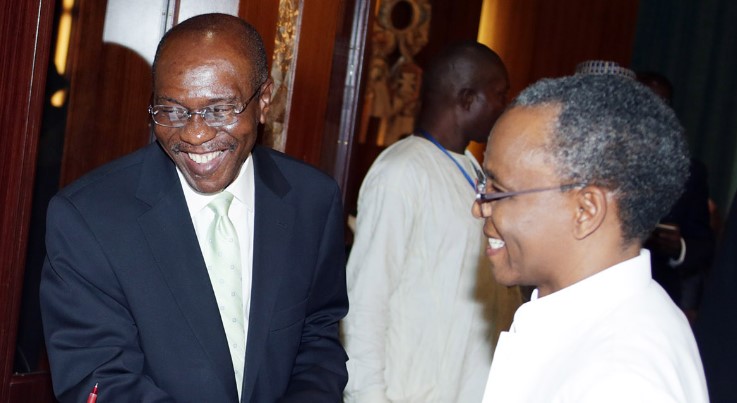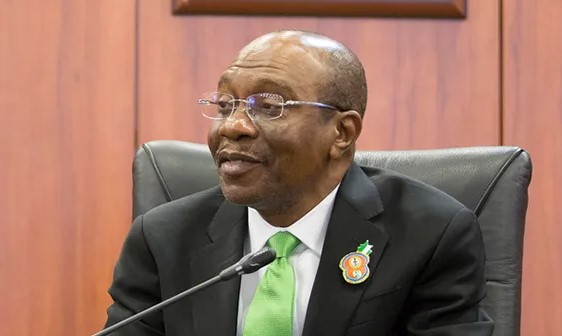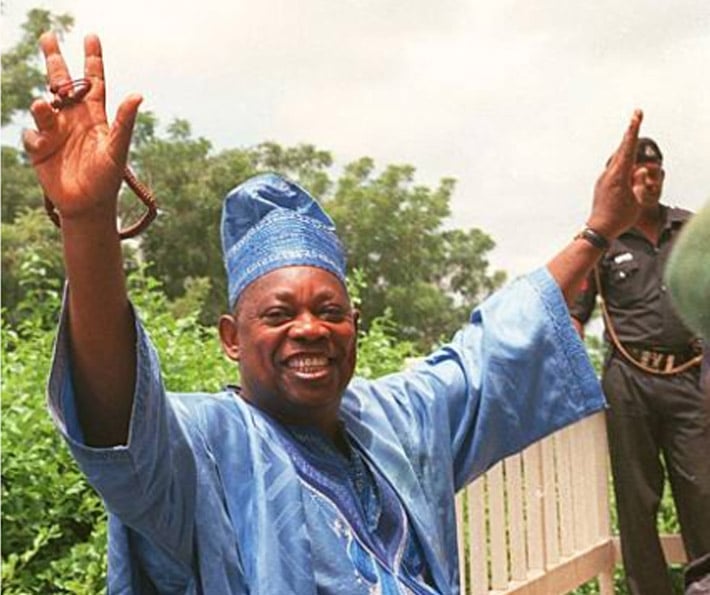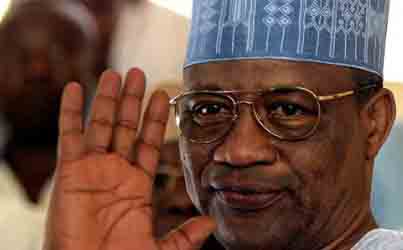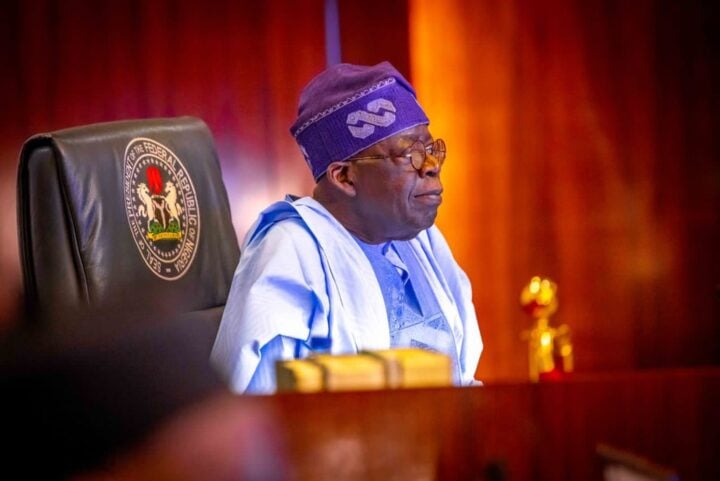The Batá is a Yoruba drum that is in a class of its own. It used to be highly venerated in social and political circles as its percussion impacted virtually all spheres of life. It is a double-faced drum shaped by its crafters to look like an hourglass, with one end of it bigger than the other. In the olden days, Bata got deployed mainly during traditional and religious festivals – it occupied a special place in the heart of Alaafin Sango, all his descendants and devotees. In its outstanding place of social pride, the Bata shared spatial recognition with Gbedu, the drum of royalty.
In those early years spanning centuries, the Bata’s uniqueness was based on its deployment to connect with the ancestors and the other world. It often cosseted local politicians on outings in village administration. In Cuba where it later migrated to in the 1800s, Bata has played a major role in religious worship known as Santeria. In the 1950s, Puerto Rico and the United States of America adopted it too as their major drum. Though it has lost its savour today as it is drummed in semi-religious musical entertainments in secular and popular music, whenever the Bata enters a gathering, it distinguishes itself because of its unmistakably unexampled voice and symphony.
However, as unique as the Bata drum is, when it makes its powerful, penetrating rhythm, Yorubas preach caution and warn the drum and its drummer to dance carefully. They say, “bi bata ba le l’ale ju, yiya ni ya – when its delicate goat skin leather gets torn, it is cast aside and becomes utterly useless”. It is a lethal warning to power-mongers on the slippery terrain of power.
Like Bata, man, no matter how respected, if he wears the alaseju (one who over-flaunts) dress, it gets torn too. Many have wondered why the Bata got the kind of veneration it has had, outside of its unique moulding. Is it its magisterially unique voice that is a rarity among other drums? The black substance gummed on the Bata’s leathery face, or its amoebic but rare make? Made by suturing goat skin on Omo wood, the Bata’s playing head is uniquely structured from the goat skin. It also has tension straps that are not only durable cowhide but which have proved to be the mastermind of its unique, penetrating, and almost ear-drum-shattering rhythm. The Bata’s penetrating power at occasions is so pervasive that it instantly becomes the lord of the manor.
Advertisement
Three Bata drums got torn midstream last week. At the apogee of their power and majesty, these drums shared essences with the Bata drum. They were sought after for their penetrating percussions. No gathering was complete without them. They shattered eardrums with the power of their presence. However, like all Bata drums that fail to heed words of advice, these Bata drums got torn and the irritancy that the torn drums provoked got to its highest decibel. As their Bata got brutally torn, gradually, they hit the butt of people’s reckoning, gravitating from being gadflies into wet-flies.
Godwin Emefiele, erstwhile Central Bank of Nigeria (CBN) governor; Nasir el-Rufai, ex-Kaduna state governor and Rauf Aregbesola, ex-minister of interior and former governor of Osun state, were poster boys of power. At the apogee of power, the flaunting of their brawns was legendary. They were the epitome of the grandeur of the top. From another prism, they were the unique masquerade, the Eegun Alare. When this masquerade appears at the market square, there is a frenzy. The Bata drummer sustains the frenzy of the Eegun Alare by drumming, in a melodic symphony, “Oo le se bii baba re – I dare you to match the feats of your forebears; exhibit their uncanny dancing mastery and ferocious hounding of their vicinity”. The masquerade roused to the zenith of his exhilaration, pushes the beast behind the Egungun mask, and elasticizes himself beyond limits. In the process, he outdoes himself. He then assumes a level of invincibility that is unearthly, something in the mould of the Friedrich Nietzsche Superman; after all, the Eegun Alare is mythically assumed to be a resident of heaven come to earth. The Egungun then gets transfixed. He operates in the realm of the celestial. His whip trounces without border, even upsetting sacred bounds, including somersaulting in overreaching, dangerous stunts.
In different ways and manners, as Emefiele, El-Rufai, and Aregbesola snatched the klieg and became the most negatively talked about persons in Nigeria last week. Their power odyssey points to that English proverb that counsels that the evil men do lives after them. On a lighter note, perhaps what they mirror, the thread that runs through them, is how they signify that classical Shakespearean Caesar and Cassius dialogue. Though unempirical, the dialogue strikes at the core of the relationship between physiognomy and evil. Wary of Cassius and his capacity for treachery, Caesar had said: “Let me have men about me that are fat; Sleek-headed men and such as sleep o’nights: Yond Cassius has a lean and hungry look; He thinks too much: such men are dangerous”. You would think Caesar was describing the Nigerian trio.
Advertisement
Lean-looking Emefiele was a financial egg-head. An economist and banker of note, Goodluck Jonathan appointed him as Nigeria’s CBN governor in 2014. Though a native of Agbor in Delta state, some chicanerous folks claim Meffy, his street name, garnered his wiles from the ruff-and-tumble slums of Lagos. Meffy grew up in Lagos, even attending the Ansarudeen Primary School and Maryland Comprehensive Secondary School in Lagos. It was only while pursuing a Bachelor’s Degree in Banking and Finance that he left the shores of Lagos, proceeding to the University of Nigeria in Nsukka. He was said to have come tops in his 1984 class. Meffy’s street wisdom, mixed with mastery of the wizardry of the marketplace, as Bob Marley sang, was the only carriage that pushed him through.
Early in his banking odyssey, Emefiele got to unravel the key that unlocks the hearts of the Nigerian men of power. Its acronym is GGG – Graft, grits, and genuflection. Immediately after Jonathan exited as president, Meffy effortlessly meandered into the hearts of the next holders of the reins of power. Muhammadu Buhari’s mythic asceticism and incorruptibility had yet to be perforated. So, to Mamman Daura, the president’s cousin, and Ismaila Isa Funtua, he gravitated. He was ready to carry their can of excrement to have his space cemented at the apex bank. In a viral photo shot, the CBN governor was pictured genuflecting by the feet of Funtua. It was a euphemism for the sequestration of the Bankers’ Banker bank. He was alleged to have opened the vaults of Nigeria’s CBN to Buhari’s acolytes and sidekicks, especially with the multiple exchange rate regime he operated by creating a rentier forex system for them. They could round-trip and emerge therefrom with billions of Naira in a jiffy. It was a shock to Nigerians when, on Thursday, May 16, 2019, Meffy became the first CBN governor since 1999 to get reappointed into office.
Like the Bata drum and the Eegun Alare, Emefiele then began to sound and dance in uncanny dancing steps, ferociously wounding the Nigerian economy as he pandered to the Buhari Villa marionettes. Roused to the zenith of power play, he pushed the beast behind his mask up and bit bullets that no one ever did. His Anchors Borrowers’ Programme (ABP), which, on its face presentation, was targeted at providing loans in kind and cash to smallholder farmers to boost their agricultural production, create jobs and reduce food import bill towards conservation of foreign reserve, became a veil to cover public eyes and siphon Nigeria’s scarce forex into the purses of some Villa rats. While claiming to have benefitted hundreds of farmers, most especially from Buhari’s north, a heist of monumental proportion was alleged to be afoot.
Perhaps, Emefiele’s most damaging bravado was his venturing into partisan politics even as a sitting CBN governor. As confirmed by the APC chairman of his ward, he registered as a card-carrying member of the party and purchased the presidential form, hiding behind an amorphous group of friends he claimed purchased it on his behalf. Pronto, as the American slang says, branded vehicles with his name embossed on them appeared on social media, with no disclaimer from his office. Then, his campaign posters flooded the nooks and crannies of Abuja. It was the most blatant exhibition of Buhari’s final castration by the Villa power cabal and a clear display of his mummified presence in Aso Rock. Not only was Emefiele’s move the most unprecedented by any chief of the Nigerian apex bank, but it was also daringly audacious. This was in vagrant disobedience of the Central Bank Act which frowned at an occupant of such exalted office peeling themselves of their apolitical, independent, and nonpartisan apparel. There was not even a single whimper from Buhari.
Advertisement
The last straw, as the cliché goes, which broke the camel’s back, was Emefiele’s Naira redesign policy. While the intent behind it, to wit to frustrate politicians warehousing cash for election purposes, was commendable, its raison d’etre, it was said, was against those who snuffed life out of his presidential bid. In the process, Emefiele literally and metaphorically killed Nigerians in their hundreds and exerted optimal pain on the people. Very many people died due to lack of access to cash while at the end of the day, the Nigerian politician who was always a step ahead in chicanery, eventually sidestepped Emefiele’s wiles. The policy, which Buhari openly sheepishly owned, was rumoured to have been an outcome of Emefiele and the cabal’s plan to frustrate Bola Tinubu whose excrement they couldn’t countenance nor stand, even in the toilet. Emefiele’s sack last Friday was thus celebrated on Nigerian streets as a typical example of a Bata drum that over-exaggerated its relevance, exceeded the decibel of its symphony, and an Eegun Alare who, in his moment of frenzied stunts, flew inside a burning fire.
The fundamental question to be asked is, however, was Emefiele cut from the zenith of power out of vengeance or the culmination of his numerous atrocities? If it is on the basis of the latter, an impartial investigation into his tenure would suffice. Will the presidency have the guts to invite Emefiele’s rumoured accomplices too, from Buhari himself to the Villa cabal and Abubakar Malami, the man said to have shrouded him with a legal shawl? If however he is being hounded simply out of vendetta, the president would be missing a key point in human philosophy. When you are enveloped by vendetta and the burning need to administer comeuppance on your nemesis, you wake up lost.
Nasir el-Rufai parades a history of political whoredom since his appearance on the Nigerian political scene as director general of the Bureau of Public Enterprises (BPE). He was in bed with Atiku Abubakar, the man who brought him out of the brier of obscurity and hoisted him into the political space. The moment Abubakar’s political matrimony to his boss, Olusegun Obasanjo, suffered a schism, the young Nasir flew to the next bed for consortium. He crouched beside Obasanjo who in turn rewarded him with a ministerial appointment. Then to Yar’Adua and Jonathan, he wagged his amorous buttock for the next dalliance.
El-Rufai’s governorship of Kaduna state for eight years paraded a horde of admirable developmental firsts. It however was nil in democratic credentials. Emperor Shaka the Zulu and Nero were his unprofessed mentors, even as he demonstrated a palpable lack of human feeling. El-Rufai sent bulldozers to the homes of his political traducers with flimsy excuses. In Nigeria where the fad is for the leadership to ethnicise politics and politicise ethnicity, El-Rufai blandly mirrors this narrow-mindedness. He habours separatist, ethnic and religious superiority, an aberration in a democracy. In a recent five-minute 43 seconds video of his that is currently generating uproar on social media, he remorselessly narrated how Kaduna would continue to be a totalistic Muslim state, something of the hue of Ayatollah Khomeini’s Iran, in a metropolitan environment where there are adherents of other faiths. That El-Rufai exhibited such a narrow mindset is not the calamity that befell Kaduna; it is the recklessness and the you-can-go-jump-inside-River-Niger mindset behind it. If Shekau or Bin Laden had professed what El-Rufai mouthed as Kaduna state’s ideology under him in that audio, no one would have bothered. Certainly, a self-professed democrat should not have anything to do with such obvious democratic philistinism. When you read that Caesar-Cassius dialogue and compare the description with El-Rufai’s physiognomy, his attendant treachery, and weird evangelism, you would wonder whether Shakespeare was a prophet.
Advertisement
This mindset may have explained why El-Rufai’s eight years boasted of thousands of butchering of people in Southern Kaduna, with their careless justifications by his government. One of his sworn critics, Senator Shehu Sani, has had a welter of unpalatable words for him, in and out of office. Perhaps the most encapsulating of them, which seems to explain the relentless shedding of blood in the state, came last Wednesday. “Bigotry is (was) a state policy in Kaduna state for the past eight years. Muslim and Christians were set up against each other for political gains. Religious clerics were drafted and paid to propagate hate and divisiveness. The government purports itself as a champion of interest of the Muslims while it inflicted suffering and hardship on the same people. The state government maintained a systemic policy of marginalisation and repression of the people of Southern Kaduna because of their faith and political choices. Over the years, some of their leaders were arrested for voicing out. The last act was the proscription of one of their groups,” Sani wrote on his Twitter handle.
Now out of power, with rumoured disenchantment with the APC-led federal government over the position of the SGF that escaped him – a la Shehu Sani – El-Rufai’s innate prostitutive inclination may yet be on automated mode. Tinubu may get ready to receive barbs from a man who Julius Caesar described in an unexaggerated narrative.
Advertisement
Then, as they did in Shakespearean drama, curtains opened on Rauf Aregbesola last week. This erstwhile Tinubu acolyte slithered into the media like a rude awakening. Dressing calamity in robes of victory, he drove in an open roof. This was garnished by a crowd whose presence stank of monetary purchase. They were there to hail his entrance into an Osun state which still gnashes its teeth as a result of his eight years of calamitous rule. On a “triumphant entry” into a state he almost set alight due to his extremist ideology, he reportedly lauded Tinubu who he said, without him, he would not have been where he is today. It was the same man he breathed the fire of a Chimera upon in Ijebu-Jesa in February 2022.
“Only God can terrify us, not man. Go and tell them wherever they are, we own this party… We followed him dutifully with all sense of loyalty… Some people even thought that we were no longer Muslims because of how we cooperated with him. We dealt with him without treachery but we never knew he planned evil for us…We exalted him beyond his status and he turned himself into a god over us and we had sworn to ridicule anyone who compares himself to God. God has no competitor; He is enough to be God…” he said as if he held the patent to the key that unlocks God’s heart. The innuendo was not lost on the crowd.
Advertisement
The common twine linking Emefiele, El-Rufai, and Aregbesola is their gross misuse of grace, their adulterous disposition to power, and their failure to realize its transience. They rode so high that they forgot that there is always a tomorrow when a man could walk in a descent down the valley of life. Aregbesola’s exceptional fall from the Kilimanjaro of political relevance lies in his arrogant, immodest sense of arrival at the top of the mountain. Even the ocean does not forget to thank the streams, springheads, and rivers that feed it.
Advertisement
Views expressed by contributors are strictly personal and not of TheCable.
Add a comment

